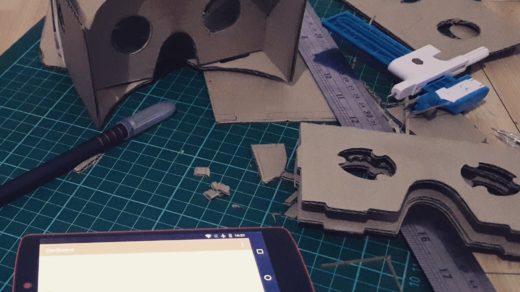Sir John William Salmond said, “There are eight kinds of law: Imperative Law, Scientific Law, Moral Law, Conventional Law, Customary Law, Technical Law, International Law and Civil Law.”[1] In the analog world that we are in, we are governed by an indefinite number of laws which affects the constant shift in the dynamics of power. From the inside of our homes to our community, we are always experiencing power at play in all areas of our lives. Thus, it was an easy choice for me to dissect and analyze power in a lesson presented by no less than writer and founder of Citizen University, Professor Eric Liu.[2]
The lesson briefly discussed (1) where power is sourced, (2) how it is applied and (3) what we, as citizens, can do to elevate our own power in the public arena. Its goal is to educate people how power operates. The knowledge of which, as the speaker says, is the key to being effective, being taken seriously, and not being taken advantage of.
Professor Liu started off by providing his definition of power. He defined it as “…the ability to make others do what you would have them do.” Another important idea that he pointed out in his introduction is that, “…in a democracy, power is supposed to reside with the people, period. Any further talk about power and who really has it seems a little dirty – maybe even evil. But power is no more inherently good or evil than fire or physics. It just is. It governs how any form of government works. It determines who gets to determine the rules of the game.” I agree with these statements because I, too, believe that power is neither black nor white. Nowadays, people lean towards labelling – and creating blanket statements – for their sheer convenience but these acts deprive us from fully understanding ideas. They take away the opportunity to see concepts from multiple perspectives. This is why I appreciate that a definition was provided and this common misconception – that power is nothing but evil – was called out early on.
Six sources of power were discussed and all of them are highly visible in today’s society. I’ve enumerated them below and provided a short description for each:
1. Physical force – Or militia. A basic source of power that is inherent amongst us.
2. Wealth – Money is often used for obtaining other sources of power.
3. State Action – This is our government. Law and bureaucracy are used to urge people to comply with a set of rules. Theoretically, in a democracy such as ours, citizens will cast their votes in an election to provide the government its powers. But sadly, there are a few loopholes to this process which may defeat its actual purpose.
4. Social Norms – Mainly deals with what is customary and operates in a non-centralized manner. Often peer to peer.
5. Ideas – Ideas, well thought or otherwise, which deal with individual liberties can amass a large following and provide power to those who believe them.
6. Numbers – Vocal masses create power by expressing collective interest and asserting legitimacy through the intensity of their impact in the society.
The speaker moved on to the next highlight of the talk after the sources of power were tackled. In order for the listeners to have a deeper understanding of how power operates, the 3 laws of power were explained. These are:
1. Power is never static.
Meaning it is dynamic – constantly changing and shifting particularly in the civic arena.
2. Power is like water.
A steady current visible in our daily lives. Professor Liu relates politics, policymaking and power by stating that “…politics is the work of harnessing that flow in a direction you prefer. Policymaking is an effort to freeze and perpetuate a particular flow of power. Policy is power frozen.”
3. Power compounds.
This is a key principle. Power creates more power. And powerlessness exacerbates powerlessness. We should keep a keen eye on laws 1 and 2 as these laws, when utilized properly, serve as our gatekeepers against a dictatorship. This is also the reason why Senate investigations in aid of legislation are held. There are many reasons why we need laws and one of them is to ensure that the few privileged people do not immortalize their power and get away from any wrongdoing.
Finally, Professor Liu wraps up his talk by advising us to read and write power. His statement may be viewed in the perspective of literacy wherein he emboldens us to see the details of our communities as text. Yes, text which we can absorb and soak in – much like a book. But he wants us to take it to the next level by asking us to create a virtual map of the powerful people, their strategies, their interests and their ties so we can form the big picture.
Once we are adept with our surroundings, he encourages us to write. Author change and believe our cause. We all have a choice whether or not we take action against even the slightest hint of oppression. At the end of the day, we are the ones who will ultimately decide if we stand our ground and face these acts with dignity and fortitude or we remain apathetic and turn a blind eye simply because it is more practical – probably even safer. In writing, we should also remember that dissent should be expected. And welcomed – for it is in discourse we are able to refine our own thoughts. Foster free speech in the community and cultivate educated ideas. This is all part of our duty in citizenship. Professor Liu left a strong closing statement for us to live by, “Power plus character equals a great citizen, and you have the power to be one.”
Everything considered, the talk was able to hit the nail on the head. I have to commend the animators of the video because their overall output was easy on the eyes. It was neither underwhelming nor overwhelming – everything was spot on. The entire animation lent a hand in clearly conveying the speaker’s message which can be a bit tricky to grasp without a visual aid.
Of course as expected from Professor Eric Liu, his lesson was timely, comprehensive and poignant. The nudge wasn’t too radical but it also wasn’t too subtle. It sparked a flame which inspires us to step out of mediocrity and be more than just citizens. But great citizens who are vanguards in our own communities.
My key takeaway from this lesson can be summarized by a famous quote from the great parliamentarian Edmund Burke:[3]
The only thing necessary for the triumph of evil is for good men to do nothing.
Bibliography
- Colman, Dan. (2016, March 13). History, Politics. Open Culture. Retrieved from http://www.openculture.com/2016/03/edmund-burkeon-in-action.html
- Farooq, Umar. (2011, August 14). Student Lecture Notes. Social Sciences. Kinds of Law by Sir John Salmond. Retrieved from http://www.studylecturenotes.com/social-sciences/law/124-kinds-of-law
- Liu, Eric. (2014, November). TED-Ed. Talks. How to Understand Power. Retrieved from https://www.ted.com/talks/eric_liu_how_to_understand_power#t-413118


